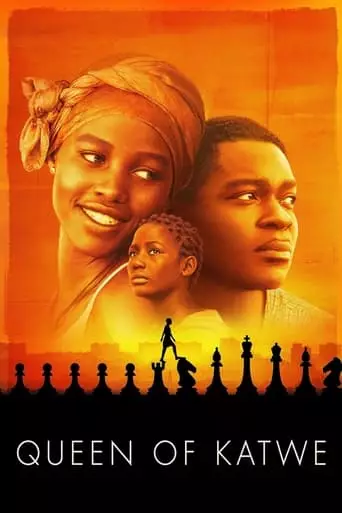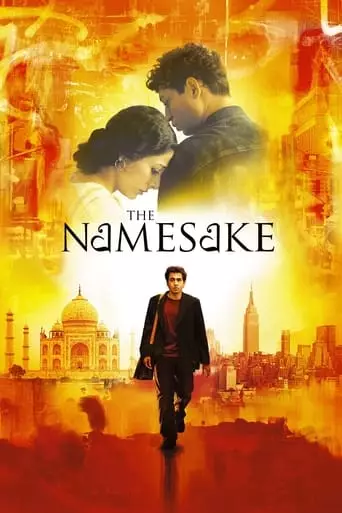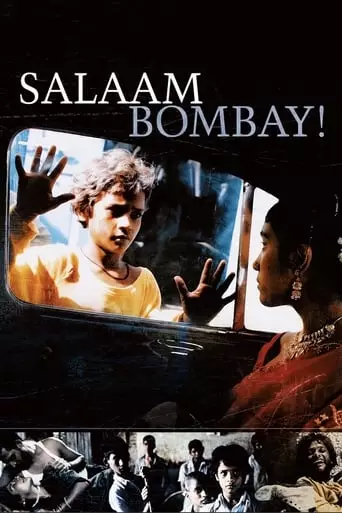A young girl overcomes her disadvantaged upbringing in the slums of Uganda to become a Chess master. Queen of Katwe (2016), directed by Mira Nair, is an inspiring biographical drama […]

A young girl overcomes her disadvantaged upbringing in the slums of Uganda to become a Chess master. Queen of Katwe (2016), directed by Mira Nair, is an inspiring biographical drama […]

After moving from Calcutta to New York, members of the Ganguli family maintain a delicate balancing act between honoring the traditions of their native India and blending into American culture. […]

As the romantic monsoon rains loom, the extended Verma family reunites from around the globe for a last-minute arranged marriage in New Delhi. This film traces five intersecting stories, each […]

After destroying his older brother’s motorbike in retaliation for his constant bullying, 11-year-old Krishna is sent to a traveling circus to earn money to pay for the bike’s repairs, but […]

In New York, a Pakistani native finds that his American Dream has collapsed in the wake of the 9/11 terrorist attacks. The Reluctant Fundamentalist (2013), directed by Mira Nair, is […]
Mira Nair: A Trailblazer in Global Cinema
Mira Nair is an acclaimed filmmaker whose work bridges cultures, continents, and genres. Known for her richly textured storytelling and vibrant visual style, Nair has carved a unique space in global cinema with films such as Salaam Bombay! (1988), Monsoon Wedding (2001), and The Namesake (2006). Her stories often explore themes of identity, family, and the clash between tradition and modernity, offering nuanced portraits of life in India and the Indian diaspora.
Early Life and Education
Mira Nair was born on October 15, 1957, in Rourkela, Odisha, India, into a Punjabi family. Her father was a civil servant, and her mother was a social worker. Nair grew up in a household that valued education and the arts, which inspired her early interest in storytelling.
She attended Delhi University, where she studied sociology and participated in theater productions. Nair later moved to the United States to study at Harvard University, where she initially focused on sociology before transitioning to filmmaking. Her academic background in sociology deeply influenced her filmmaking, particularly her focus on social issues and marginalized communities.
Early Career: Documentaries
Nair began her career as a documentary filmmaker, crafting stories that highlighted social and cultural realities. Her early works, such as India Cabaret (1985), a documentary about female cabaret dancers in Mumbai, showcased her ability to delve into complex and often taboo subjects with sensitivity and insight. This experience laid the foundation for her narrative filmmaking, instilling in her a commitment to authenticity and social commentary.
Breakthrough: Salaam Bombay!
Nair’s feature debut, Salaam Bombay! (1988), was a groundbreaking achievement. The film, a poignant portrayal of street children in Mumbai, was both a critical and commercial success. It received the Camera d’Or at the Cannes Film Festival and was nominated for an Academy Award for Best Foreign Language Film.
The film’s unflinching depiction of poverty and resilience, combined with its use of non-professional actors, brought a raw immediacy to the story. Salaam Bombay! established Nair as a bold and compassionate storyteller and remains a landmark in Indian cinema.
Mississippi Masala: Exploring Diaspora and Identity
In 1991, Nair directed Mississippi Masala, a romantic drama starring Sarita Choudhury and Denzel Washington. The film explores the lives of an Indian family displaced from Uganda and their interactions with African American communities in the American South. With its exploration of race, identity, and belonging, Mississippi Masala resonated with audiences worldwide and showcased Nair’s talent for weaving complex narratives that transcend cultural boundaries.
Monsoon Wedding: A Global Sensation
In 2001, Nair achieved widespread acclaim with Monsoon Wedding, a colorful and emotionally rich exploration of a Punjabi family preparing for a lavish arranged marriage. The film masterfully balances humor and drama, delving into themes of love, family dynamics, and societal expectations.
Monsoon Wedding won the Golden Lion at the Venice Film Festival and became a global sensation, cementing Nair’s reputation as a filmmaker who could create stories with universal appeal while remaining deeply rooted in Indian culture.
Literary Adaptations: The Namesake and Vanity Fair
Nair has a talent for adapting complex literary works for the screen. In The Namesake (2006), based on Jhumpa Lahiri’s novel, she tells the story of a Bengali-American family grappling with cultural identity and generational conflict. The film, starring Kal Penn, Tabu, and Irrfan Khan, was widely praised for its emotional depth and authenticity.
In 2004, Nair directed Vanity Fair, a period drama based on William Makepeace Thackeray’s novel. Starring Reese Witherspoon as the ambitious Becky Sharp, the film brought Nair’s signature vibrancy and cultural sensibility to a classic British story.
Social Commitment: The Reluctant Fundamentalist
In 2012, Nair directed The Reluctant Fundamentalist, based on Mohsin Hamid’s novel. The film examines the complexities of identity and perception in a post-9/11 world through the story of a Pakistani man navigating life in America and his homeland. It reflects Nair’s commitment to tackling politically and socially relevant issues with nuance and empathy.
Beyond Film: Stage and Philanthropy
Nair’s creative vision extends beyond cinema. She directed Monsoon Wedding as a stage musical, which premiered in 2017 to critical acclaim. She is also the founder of the Maisha Film Lab, a nonprofit organization that supports emerging filmmakers in East Africa. Through Maisha, Nair has mentored a new generation of storytellers, reflecting her dedication to nurturing diverse voices in global cinema.
Style and Themes
Mira Nair’s films are celebrated for their vibrant aesthetics, richly drawn characters, and intricate storytelling. Her narratives often explore the intersection of personal and cultural identity, with a focus on family dynamics, love, and resilience. Nair’s ability to capture the texture of everyday life, combined with her commitment to social realism, makes her work both deeply personal and universally resonant.
Legacy and Influence
Mira Nair is a trailblazer who has broken barriers for women and people of color in the film industry. Her ability to tell stories that are both specific in their cultural context and universal in their emotional appeal has earned her a place among the most influential filmmakers of her generation. Nair’s work continues to inspire audiences and filmmakers around the world, proving the power of storytelling to connect people across borders and cultures.
Conclusion
Mira Nair’s career is a testament to the transformative power of cinema. Through her films, she has illuminated the complexities of human experience, celebrating diversity while addressing pressing social issues. As a filmmaker, mentor, and cultural ambassador, Nair has left an indelible mark on global cinema, and her legacy continues to inspire and empower storytellers worldwide.